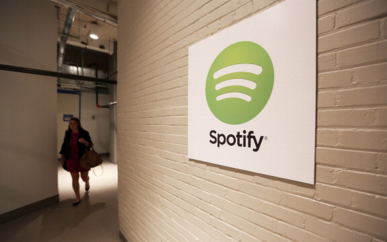“Happy Crimble, with love from us to you,” blazed The Beatles’ official website on Dec. 24. Then, for the first time in its 50+ year history as one of the most acclaimed and lauded bands in music, The Beatles’ complete portfolio was available to stream. For those introduced to The Beatles on record players, cassette tapes or boomboxes, this was exciting. For those who also pay the small fee that streaming apps require, the news was not short of miraculous — some of the best music arguably ever created available for infinite streaming. While I happily listened to “Hey Jude” on my phone, I had the thought that inspired this article — with the acquisition of The Beatles, streaming has cemented its way into culture, into our pockets and into the foreseeable future.
If you consider the relatively new-kid-on-the-block status of Internet streaming, its impact on the culture is startling. Like the Internet itself, it seemed as if one afternoon we didn’t have it and the next it was ubiquitous. Streaming services allow us to access nearly unlimited content for virtually nothing — music, movies, video games, literature, articles and videos. Sites such as YouTube, Spotify, Apple Music and Netflix promise enormous reward for very little payout, and let’s face it, the small fee required by some of these services is easy to bypass. For example, I have access to two Netflix accounts I don’t pay for. I have access to Spotify — and I don’t pay for it. YouTube is “free” for those of us who can patiently sit through advertisements every few minutes. Apple Music only requires that you first have an Apple product.
As a quick marketplace example of scheming the system — imagine that you really love music and you want to be able to access all of it (a thought unthinkable for anyone but the incredibly wealthy 25 years ago). Easy: You split the monthly fee ($10) for a Spotify subscription with a friend, and you’re paying $60 for a year’s worth of 24/7-split-two-ways infinite streaming. The rest of the sites work the same way. Some are free if you can stand ads.
This does not mean I recommend you take this route — on the contrary, many musical artists have protested streaming services’ disregard for actually paying their contributors. Taylor Swift is the immediate example, recently pulling her music from Spotify, saying that music and other art should be paid for, an honor-code stipulation many services fail to honor. Tidal, the music streaming service recently acquired by Jay Z, made a point of advertising itself as the streaming service that pays the most royalties to contributing artists and songwriters.
Given the outpouring of support both by the media and by consumers to the plight of the hungry artist, this fact can’t disparage the absolute ease with which streaming makes its content available. And some of that content is very good (cf. The Beatles). Some have called system — in which content is made available regardless of its popularity, demand, etc. — a “content utopia.”
What might a “content utopia,” look like? I think it’s quite a nice view. Material that doesn’t have to pander to TV execs expecting views. Music that doesn’t have to be “mainstream” to hit the mainstream. The advent of self-publishing as a career-maker. Limitless access to cultures (maybe not even our own — gasp) and ideas (maybe even some we don’t agree with right away — double gasp).
Some might say this means quality will conversely go down. I don’t think so. I think “content” is a dish best served lukewarm so everyone can stomach it and everyone can make the choice of whether or not they like it.
The idea that The Beatles’ music got 70 million plays in the first three days of streaming — incredible. The fact that 65 percent of all those streams went to people under the age of 34, people born after The Beatles were no longer even a band — downright mind-blowing. Not only are younger people listening to obviously high-quality material, they can access it, gain inspiration from it, mimic it in their own creations, stream their stuff to YouTube, Spotify, Tidal — all for $10 a month. That’s a virtual utopia if I could ever have conceived of one. Now all we have to do is figure out a way for these artists to get paid … Perhaps I should go get my own Netflix.


